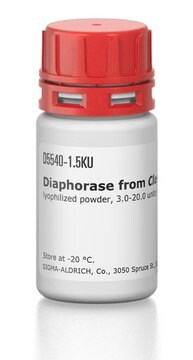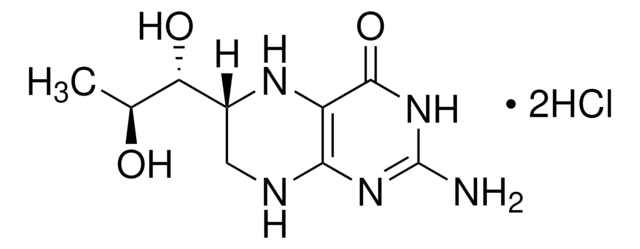N2783
Nitric Oxide Synthase, Inducible from mouse
recombinant, expressed in E. coli, buffered aqueous solution
Sinónimos:
Inducible Nitric Oxide Synthase, NOS II, iNOS, macNOS
About This Item
Productos recomendados
recombinant
expressed in E. coli
Quality Level
form
buffered aqueous solution
specific activity
≥4.0 units/mg protein
mol wt
130 kDa (homodimer)
130 kDa (subunit, homodimer)
UniProt accession no.
shipped in
dry ice
storage temp.
−70°C
Gene Information
mouse ... Nos2(18126)
¿Está buscando productos similares? Visita Guía de comparación de productos
General description
Application
Biochem/physiol Actions
Unit Definition
Physical form
Storage Class
10 - Combustible liquids
wgk_germany
WGK 3
flash_point_f
Not applicable
flash_point_c
Not applicable
Elija entre una de las versiones más recientes:
¿Ya tiene este producto?
Encuentre la documentación para los productos que ha comprado recientemente en la Biblioteca de documentos.
early lactation in water buffalo dams
Artículos
Oxidative stress is mediated, in part, by reactive oxygen species produced by multiple cellular processes and controlled by cellular antioxidant mechanisms such as enzymatic scavengers or antioxidant modulators. Free radicals, such as reactive oxygen species, cause cellular damage via cellular.
Nuestro equipo de científicos tiene experiencia en todas las áreas de investigación: Ciencias de la vida, Ciencia de los materiales, Síntesis química, Cromatografía, Analítica y muchas otras.
Póngase en contacto con el Servicio técnico





